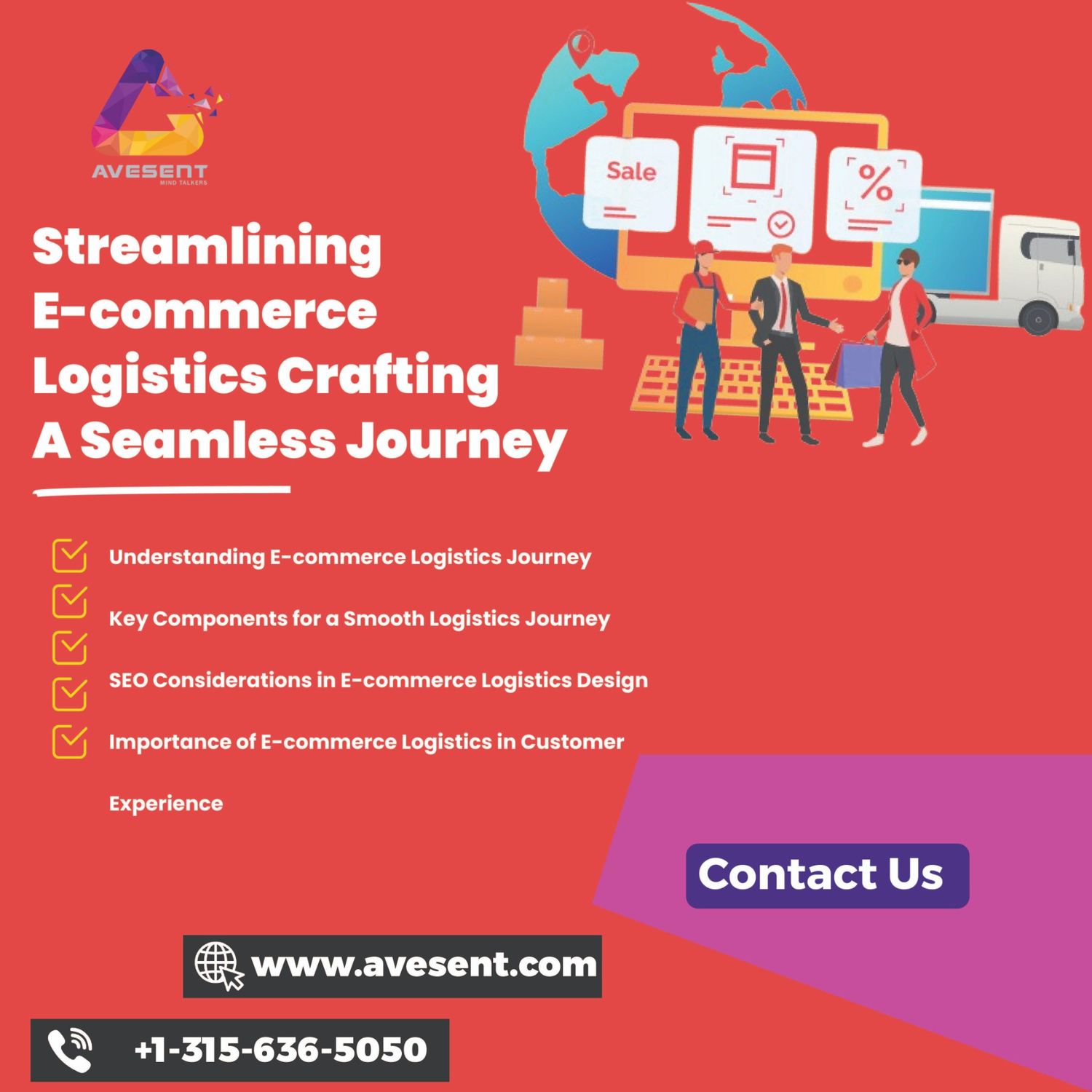Streamlining E-commerce Logistics: Crafting a Seamless Journey
In the intricate landscape of e-commerce, logistics stand as the backbone of successful transactions, ensuring a smooth journey from cart to doorstep. Designing an effective logistics strategy isn’t just about shipping products; it’s about orchestrating a seamless experience that encompasses order fulfillment, shipping, and delivery. Let’s navigate through the intricacies of e-commerce logistics, understanding its significance in optimizing customer journeys while aligning with SEO (Search Engine Optimization) strategies.
Understanding E-commerce Logistics Journey
1. Order Processing and Fulfillment
Logistics begin with order processing. Efficient fulfillment involves inventory management, picking, packing, and order processing.
2. Shipping and Delivery Management
Shipping involves carrier selection. Delivery management includes tracking, ensuring timely and secure delivery.
Key Components for a Smooth Logistics Journey
1. Inventory and Warehouse Management
Efficient warehouse management is crucial. Proper inventory tracking and management ensure accuracy in fulfillment.
2. Shipping Methodologies and Partnerships
Choose reliable shipping partners. Explore shipping options like standard, express, or same-day delivery based on customer needs.
3. Delivery Tracking and Communication
Provide transparency in delivery. Offer tracking facilities and proactive communication to keep customers informed.
Importance of E-commerce Logistics in Customer Experience
1. Timely Order Fulfillment
Swift fulfillment enhances satisfaction. Prompt order processing contributes to positive customer experiences.
2. Seamless Shipping and Delivery
Smooth shipping impacts retention. Hassle-free delivery experiences foster customer loyalty and repeat purchases.
SEO Considerations in E-commerce Logistics Design
1. Optimization for User Experience
Prioritize user-centric logistics. Seamless logistics align with SEO by fostering positive user experiences.
2. Keyword Optimization in Shipping Information
Optimize shipping information. Incorporate relevant keywords in shipping descriptions and policies for SEO alignment.
Strategies for Enhancing E-commerce Logistics
1. Automation and Technology Integration
Leverage automation tools. Incorporate technology for inventory management and order processing efficiency.
2. Sustainable Packaging Solutions
Opt for sustainable packaging. Eco-friendly packaging aligns with customer values and promotes brand reputation.
3. Flexible and Scalable Logistics Framework
Design scalable logistics. Infrastructure should accommodate growth without compromising efficiency.
Analyzing Logistics Performance Metrics
1. Order Fulfillment and Delivery Timeframes
Monitor fulfillment and delivery times. Analyze performance against set benchmarks for optimization.
2. Customer Feedback and Satisfaction
Seek customer feedback. Use insights to refine logistics strategies and address pain points.
Continuous Adaptation and Improvement
1. Iterative Optimization
Iterate based on data. Continuously optimize logistics processes for efficiency and customer satisfaction.
2. Technological Advancements and Innovations
Stay updated with innovations. Embrace new technologies for enhanced logistics operations.
Future Trends and Evolution in E-commerce Logistics
1. AI and Predictive Analytics in Logistics
Explore predictive analytics. Utilize AI for demand forecasting and enhanced logistics planning.
2. Last-Mile Delivery Innovations
Focus on last-mile delivery. Innovations in delivery methods impact customer satisfaction and retention.
Conclusion
E-commerce logistics design isn’t confined to shipping products; it’s about orchestrating a flawless journey that elevates customer satisfaction and loyalty. By streamlining logistics processes and aligning them with SEO strategies, brands can elevate the customer journey and enhance search engine visibility.
In the dynamic realm of e-commerce, mastering logistics isn’t just a necessity; it’s a strategic endeavor that drives customer delight, fosters brand loyalty, and propels e-commerce success.




